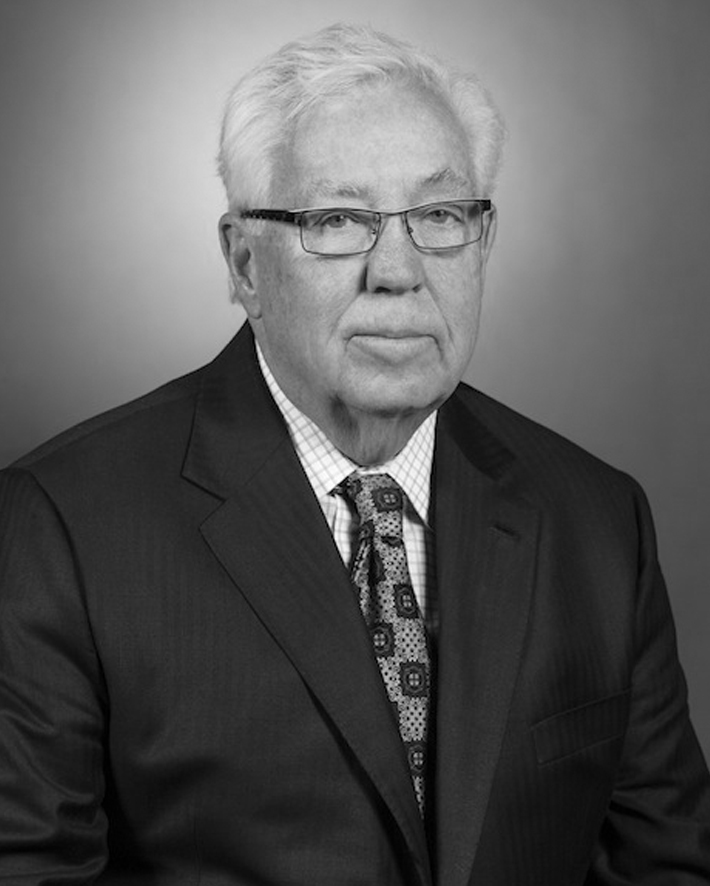
Biography
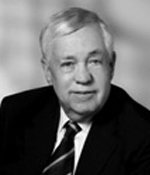 Clayton (Clay) Riddell grew up in a middle-class Winnipeg home, the son of a mailman. Upon graduation from the University of Manitoba, he began his career as a geologist with Chevron in 1959. Ten years later, he left Chevron to start his own business, C.H. Riddell Geological Consultants Ltd. In 1974, Clay launched a private firm called Paramount Oil & Gas Ltd. Four years later, he incorporated Paramount Resources Ltd. and sold 40% of the company to the public in an IPO, raising $5 million.
Clayton (Clay) Riddell grew up in a middle-class Winnipeg home, the son of a mailman. Upon graduation from the University of Manitoba, he began his career as a geologist with Chevron in 1959. Ten years later, he left Chevron to start his own business, C.H. Riddell Geological Consultants Ltd. In 1974, Clay launched a private firm called Paramount Oil & Gas Ltd. Four years later, he incorporated Paramount Resources Ltd. and sold 40% of the company to the public in an IPO, raising $5 million.
Paramount still operates today and explores for, develops, processes, transports and markets petroleum and natural gas. Paramount also prides itself on being ahead of the curve. Long before it became fashionable to do so, the company focused its exploration on natural gas. More than 90% of Paramount’s revenue is derived from natural gas sales and the company has consistently been one of the top gas-zone finders in Canada. “We built our entire company by drilling and developing gas beyond the edge of the pipelines where there wasn’t as much competition,” says Clay.
Through two restructurings, Paramount Resources has spawned two large royalty trust companies, Paramount Energy Trust and Trilogy Energy Trust. Clay’s two children, Jim and Sue, are currently running Paramount Resources and the two Trust spin-outs, with Clay’s active involvement.
In addition to his contributions to business, Clay has also been recognized as a donor to Calgary's Potential Place. This organization provides treatments for mental illness by creating a restorative environment within which individuals who have been socially and vocationally disabled by mental illness can attain or regain the self esteem, confidence and skills necessary to lead vocationally productive and socially satisfying lives. He has also been involved in fundraising initiatives for the Calgary Flames Charity Foundation, the Between Friends charity golf tournament and the University of Manitoba. The Clayton H. Riddell scholarship of Environment, Earth, and Resources at the University of Manitoba is named in Clay's honour. He donated $10-million in order to create an endowment fund for the faculty. The faculty combines the Department of Environment and Geography, the Department of Geological Sciences and the Natural Resources Institute.
Clay is a part owner of the Calgary Flames and is an investor in the food and beverage business, including the popular restaurants Wildwood Grill and Bonterra. He owns a 190-hectare ranch southwest of Calgary, where he indulges his passion for breeding thoroughbred horses. According to the Canadian Business Magazine, Clay ranked as the 50th wealthiest person in Canada in 2004. Riddell was a past president of the Canadian Society of Petroleum Geologists and Chair of CAPP.
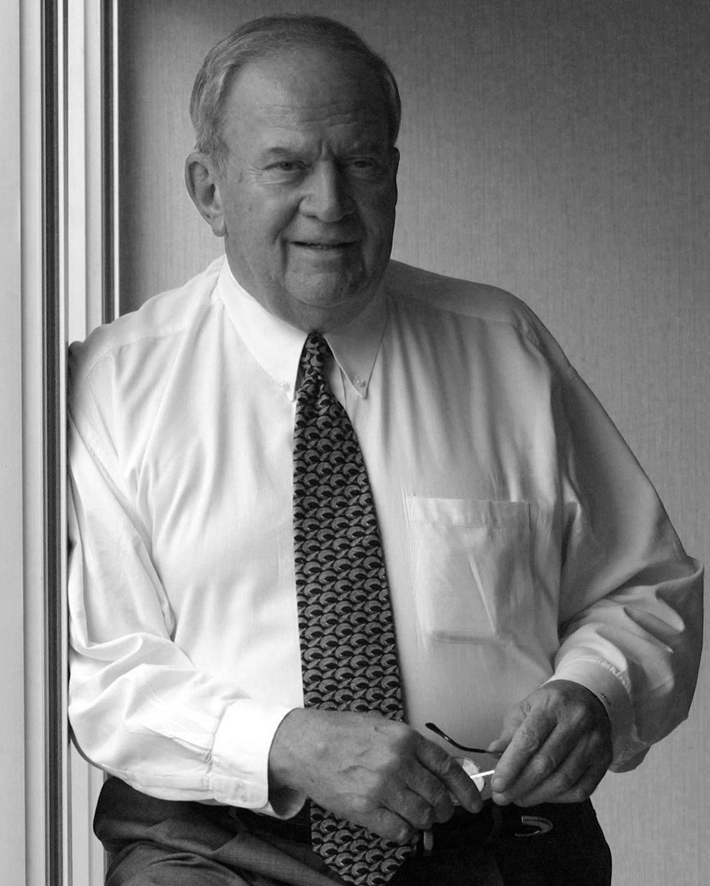
Biography
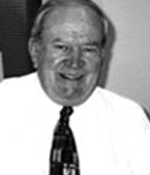 James Carl (JC) Anderson left his Nebraska home to study petroleum engineering at the University of Texas at Austin in the 1950s. Following graduation with his bachelor’s degree, he worked briefly as a roustabout for Amoco in west Texas, and then spent two years in military service with U.S. Army Counter-Intelligence. He returned to Amoco in 1956 and over the next dozen years, he worked as a Petroleum Engineer in Texas, Louisiana, Oklahoma, Colorado and Canada. In 1966, he was transferred to Calgary and became the Chief Engineer with Amoco Canada.
James Carl (JC) Anderson left his Nebraska home to study petroleum engineering at the University of Texas at Austin in the 1950s. Following graduation with his bachelor’s degree, he worked briefly as a roustabout for Amoco in west Texas, and then spent two years in military service with U.S. Army Counter-Intelligence. He returned to Amoco in 1956 and over the next dozen years, he worked as a Petroleum Engineer in Texas, Louisiana, Oklahoma, Colorado and Canada. In 1966, he was transferred to Calgary and became the Chief Engineer with Amoco Canada.
J.C. added Canadian citizenship to his U.S. papers, and by August 1968 had moved on to found Anderson Exploration Ltd. (Anderson), which was funded on a joint venture and share equity basis with a combination of individual investors and publicly-traded corporate investors. It went public in Canada in 1988, and was listed on the New York Stock Exchange in 2001. The scale of J.C.'s accomplishment was demonstrated in 2001 when Devon Energy of Oklahoma City paid US$3.4 billion to buy the Calgary firm he built from scratch and led to the end.
Excited by exploration, this visionary in natural gas was responsible for one of the largest finds in Alberta gas history, the vast Dunvegan field. J.C. negotiated a major exploration area gas purchase contract with a unique interest-free development loan of one cent per thousand cubic feet of gas discovered. The development loan paid in at $11.2 million when the field was measured at 1.12 trillion cubic feet of gas.
J.C. was one of the first to see the promising fundamentals of natural gas as a source of energy. With great ingenuity, he built Anderson Exploration into one of Canada's top 10 oil and gas producers, the lure that attracted Devon. Operations stretched from the Beaufort Sea across Western Canada to Manitoba. There were 990 permanent employees and projected 2001 capital expenditures of $992 million. Holding 1.3 million acres, Anderson was the largest owner of exploration rights in the Mackenzie Delta-Beaufort Sea region.
Late in 2000, Anderson participated in the first exploratory well drilled on the Mackenzie Delta in 20 years, upholding its reputation as a pioneer. Within the year prior to the Devon transaction, J.C. also completed two major corporate acquisitions, each in the billion-dollar range. Never one to slow down, J.C. founded a new private company in 2002, Anderson Energy and raised $80 million to continue to explore for new undiscovered reservoirs in Western Canada.
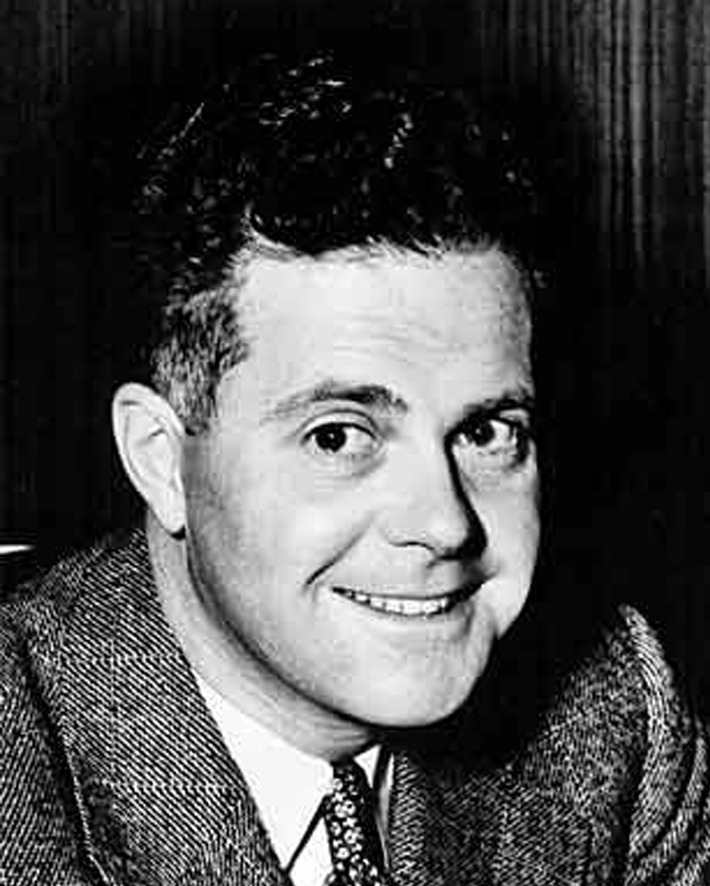
Biography: The Spirt of Max Bell
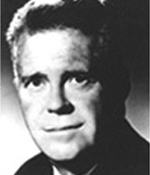 An extraordinarily astute and far-sighted son of the Canadian West, George Maxwell Bell (1912-1972) contributed significantly to the wave of expansion of North American enterprise in the mid-twentieth century. During his multi-faceted career, Max Bell achieved pre-eminence as a businessman, entrepreneur, oilman, newspaper publisher, sportsman and philanthropist. A highly religious man, Max Bell was a sincere and generous humanitarian who possessed great vision and the practical bent necessary to translate it into reality.
An extraordinarily astute and far-sighted son of the Canadian West, George Maxwell Bell (1912-1972) contributed significantly to the wave of expansion of North American enterprise in the mid-twentieth century. During his multi-faceted career, Max Bell achieved pre-eminence as a businessman, entrepreneur, oilman, newspaper publisher, sportsman and philanthropist. A highly religious man, Max Bell was a sincere and generous humanitarian who possessed great vision and the practical bent necessary to translate it into reality.
Max Bell thrived on taking risks. Throughout his life, he continually supported unproven and often risky ventures. Both his mind and his spirit fed on innovation. This spirit has guided the work of the Foundation over the last 25 years.
Max Bell's fulfillment of his high and diverse aspirations is a tribute to the free enterprise system to which he was devoted. After graduating from McGill University with a Commerce degree in 1932, he held various jobs as a labourer and prospector in British Columbia.
Showing his acumen and preference for what he called the "dealing side" of business, he managed to secure a contract providing railway ties to the Canadian Pacific Railway and invested the profits in a dormant Turner Valley oil company.
In 1935, Max Bell became the business manager of his father's ailing newspaper, The Albertan. Three months later his father died, leaving the paper $500,000 in debt. In 1943, Mr. Bell raised enough money with the help of four friends to buy The Albertan. Within two years he had repaid all his father's debts.
An investment in Turner Valley Oilwell #1 would yield Max Bell his initial fortune as a result of the 1947 oil boom. He applied the profits to other newspaper investments. In a related initiative, he later became one of the original developers and owners of Alberta Eastern Natural Gas Company, pursuing a vision of drilling for low cost natural gas in southeastern Alberta.
Recognizing the potential of consolidation on a national scale, Max Bell formed a partnership with the late Victor Sifton and the late Richard S. Malone of the Winnipeg Free Press. The pooling of their respective newspaper holdings and their 1959 purchase of The Ottawa Journal resulted in the formation of F.P. Publications, Ltd., which became one of the largest newspaper chains in Canada. In 1961, Max Bell became Chairman of the organization. Under its control were, amongst others, the Vancouver Sun, the Toronto Globe and Mail, the Winnipeg Free Press, the Lethbridge Herald, the Victoria Times and the Victoria Colonist.
Never content with exclusive involvement in any one enterprise, Max Bell also served as a Director of the Canadian Pacific Railway, the Bank of Nova Scotia, Northern Electric and a number of other major Canadian corporations as he pursued his entrepreneurial interests.
A dedicated athlete and fitness enthusiast, Max Bell was an internationally recognized sportsman. He played both football and hockey at McGill and hockey for the Kimberley Dynamiters. He developed a passionate interest in thoroughbreds, which he nurtured through his lifelong friendship and association with the legendary jockey Johnny Longden and long time friend Bing Crosby.
Not surprisingly, he was as shrewd a handicapper of racehorses as he was of business investments. He established a substantial racing operation with Frank McMahon, and their stable's colours were a familiar sight in North America and Europe.
Mr. Bell's other involvements in sports included part ownership for a number of years of the Vancouver Canucks Hockey Team and the creation of Hockey Canada of which he was the first Chairman. He was also keenly interested in ranching, and was a partner in Alberta Ranches and Golden West Farms.
The vision and spirit manifest in Max Bell's business and sports enterprises also pervaded his myriad philanthropic activities. Dedicated to the education of young people, he contributed generously to various boys' camps and provided countless university scholarships anonymously.
A student of the Bible and an active member of Grace Presbyterian Church in Calgary, Max Bell led the Canada-wide institution of synods which facilitated the expansion of the Presbyterian Church in the late fifties and sixties. He had an abiding faith in God from which he continually drew his strength and to which he gave his thanks. He gave generously to the needy through the Salvation Army and supported Msgr. Athol Murray's Notre Dame College in Wilcox, Saskatchewan many, many times.
A fiercely loyal man, Max Bell possessed quiet courage and tenacity, attributes, which served him, well in his many undertakings. His dry wit and command of the English language made him a popular after-dinner speaker and his remarks were enlivened by an ability to tell amusing stories in almost any dialect. Mr. Bell was often quoted as saying, "The only time money is important is when you haven't any. Once you have it, however, you must accept the responsibility to make the best use of it and to ensure that those who become dependent on you for a livelihood are not injured by your transactions." His legacy to this credo is the Max Bell Foundation, which he established with the gift of a substantial portion of his estate - over $17 million in F.P. Publication shares - shortly before his tragic and premature death on July 19, 1972 at the Montreal Neurological Institute.
Since his death, the Foundation has authorized hundreds of grants totaling more than $65 million to a wide range of organizations across Canada. As stipulated by Max Bell, thirty percent of the amount awarded each year is directed to McGill University, one half to the Faculty of Medicine and the other half to the general purposes of the University.
On the Occasion of Mr. Bell's passing, numerous Canadians and organizations paid tribute:
"He was above all things a builder, and an imaginative and successful one, with a vision that went far beyond his own private interest and encompassed many good causes which he felt would help Canada. He will be greatly missed." (The Rt. Honourable Lester Pearson, former Prime Minister of Canada)
"A business genius, he nevertheless made time to devote a portion of his life to community and Canadian affairs. Canada has lost a great citizen, and the West a loyal native son." (Mr. N.R. Crump, former President of Canadian Pacific)
"His beneficences were as generous and as wide as they were largely unknown. He gave handsomely to the established institutions, to his church, to universities, hospitals, to Hockey Canada." (The Vancouver Sun)
Max Bell's legacy of philanthropy lives on.
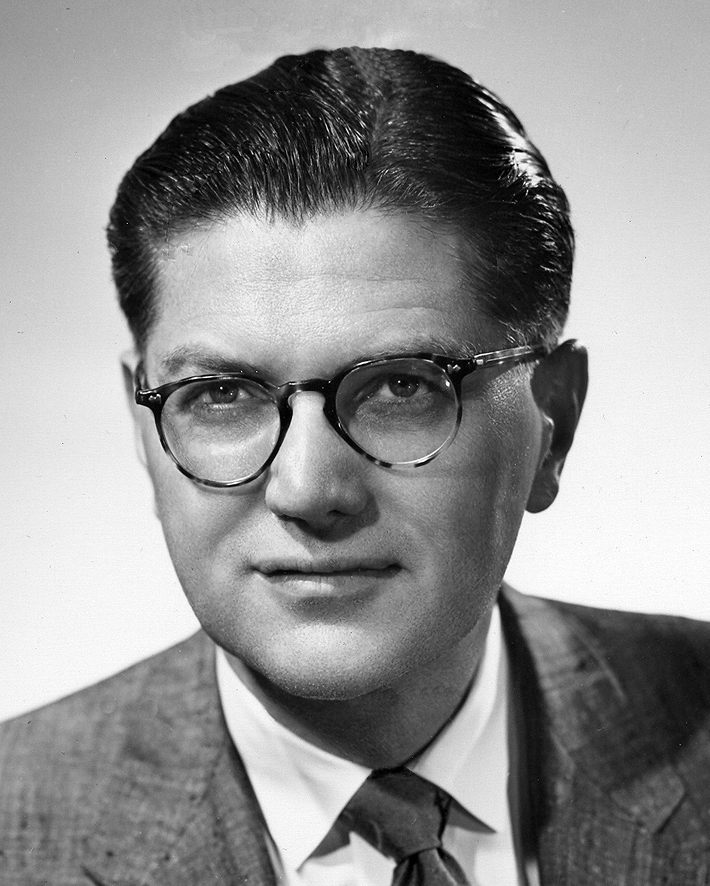
Biography
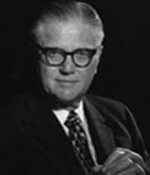 Frederick Charles Mannix was born on October 21, 1913 in Edmonton, Alberta, son of Edmonton pioneers Frederick Stephen and Byryid Fitzpatrick Mannix. His father was a construction pioneer from Manitoba who moved his contracting business to Edmonton in 1905 to work on the railway grade for the Great Northern Railway.
Frederick Charles Mannix was born on October 21, 1913 in Edmonton, Alberta, son of Edmonton pioneers Frederick Stephen and Byryid Fitzpatrick Mannix. His father was a construction pioneer from Manitoba who moved his contracting business to Edmonton in 1905 to work on the railway grade for the Great Northern Railway.
Fred C. began working with his father at a very early age while still at school, but in the 30’s he began his career in earnest, becoming a partner with his father in 1935. These early years with his father as mentor gave him a solid foundation in general contracting. In 1942, when his father’s health was failing, the decision was made to sell the business. However Fred C. kept an ownership position and headed up the new organization, which was set up as Canadian subsidiary of the Morrison-Knudsen Construction Company of Boise, Idaho. Fred C. was now learning how to do things on a larger, more international scale. During the remainder of the 1940’s, he participated in the building of many of Canada’s major infrastructure projects including highways, pipelines, mines, dams, railways and airports. He will long be remembered as one of the great builders of our country. In 1951, Fred C. was able to bring full ownership of the outfit home to Canada, under the Mannix Construction banner.
During the 1950’s, having established one of Canada’s largest construction companies, Fred C. Mannix diversified his business, creating the Loram Group of Companies and established what became during his time the country’s largest coal producing company, Manalta Coal Ltd. In the mid-1950’s his group was successful in their bid to construct and own the Pembina Pipe Line Ltd. which later diversified into oil and gas production, eventually becoming Pembina Corporation, the largest owner/operator of crude oil and liquids feeder pipelines in Canada. Another of his companies, Loram Maintenance of Way, Inc. based in the United States became a leading designer, manufacturer and service contractor of railroad maintenance equipment working principally in North America.
Fred C. Mannix withdrew from active involvement in the business in the 1970’s and at that time, passed the responsibility for the perpetuation of the group of companies over to his two sons, Frederick P. Mannix and Ronald N. Mannix. Fred P. and Ron grew the group to maturity in the 80’s and 90’s and capped off a century of the family business started by their grandfather with the divestiture of the energy assets in 1997. Manalta Coal and Pembina Pipeline and Pembina Resources Inc. were sold to the public markets. Fred P. is now operating his own group of companies, Mancal Corporation and Ron operates Coril Holdings Ltd., each independent, but each built solidly on their father’s legacy from the Loram Group.
F. C. Mannix was a founding member and long-serving Councilor of the Canada West Foundation, a director of the Royal Bank of Canada from 1965 to 1984; and a Director of the Steel Company of Canada from 1962 to 1984. He was a Trustee of Scripps Clinic and Research Foundation in La Jolla, California and made Trustee Emeritus until his passing in 1995.
In 1961, Fred C. Mannix and his company, Mannix Co. Ltd. won the prestigious Mole award presented by the United States construction industry—the first company outside the U.S. ever to be so honoured. Other honours bestowed on him include an honorary Doctorate of Laws degree from the University of Alberta in 1972, an honorary membership in the Association of Professional Engineers, Geologists and Geophysicists of Alberta, as well as honorary membership in the Alberta Roadbuilders Association, and the Hall of Fame of America’s Builders. Fred C. was one of only two living laureates inducted into the Canadian Business Hall of Fame when Junior Achievement founded it in 1979. In 1985, he was named an Office of the Order of Canada, and in 1987, he was made an Honorary Associate of the Conference Board of Canada.
In 1939, Fred C. wed Margaret Ruth Boughton of the Ottawa-Hull region and together they raised their three children on the outskirts of Calgary in the Fish Creek area. Fred C. and Margie Mannix established the Carthy Foundation in 1965, together with their children Fred P., Maureen and Ron, as a family legacy. Through this family foundation they taught their children to give back to the community in which their businesses flourished. The foundation is now being stewarded by Mr. and Mrs. F. C. Mannix’s eleven grandchildren. In 1998, Fred, Maureen and Ron endowed the foundation with $50 million in memory of their father and mother in order to ensure their legacy was continued for future generations of Canadians. Fred C. was also one of the founding members of the Calgary Foundation in 1955.
Fred C. Mannix passed away at the age of 81 on July 29th, 1995, but his many legacies remain for all. He was an intensely private man and remarkably reticent about his own past accomplishments. The story of life, however, reveals a man of exceptional talent and vision, a master builder whose works display an impressive scope of accomplishments helping to build our modern day Canada and many parts of North America.

